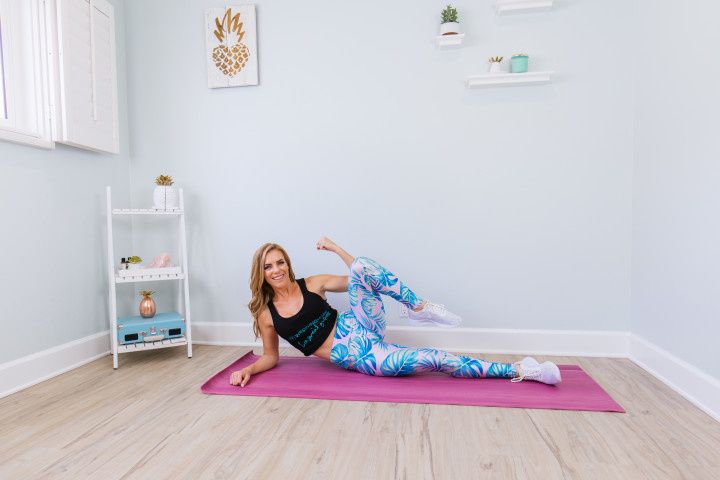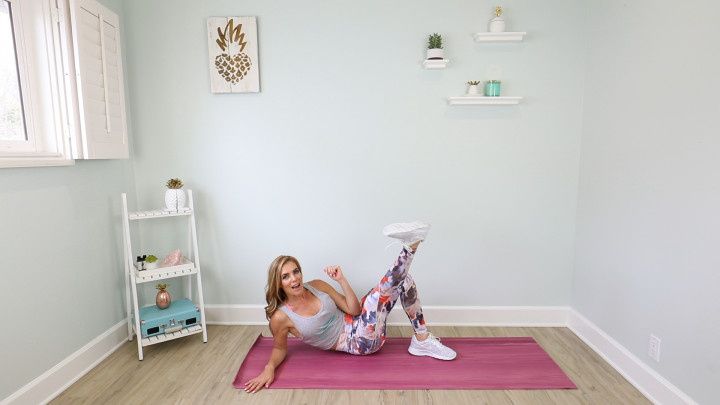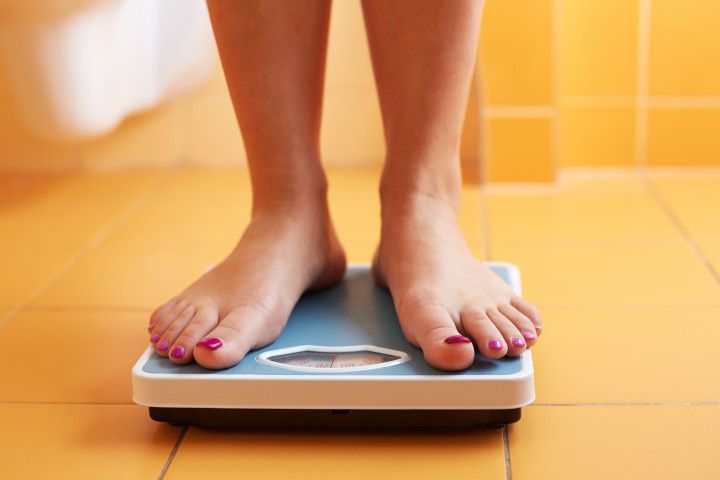6 Ways to Cope With the Pressure of Looking Good for Your Wedding
Louder for the people in the back: Let go of the desire for perfection. Here's how to handle the pressure of looking good for your wedding gracefully.


Your wedding is one single day in the scheme of your entire life, yet it holds so much weight to you, your significant other, so many of your family and friends. So if your big day is about to roll around and you’re feeling some wedding-related pressure, it’s certainly no surprise. How many other events in your life involve all eyes zeroing in on you with the focal point being your physical appearance—your hair, your body, your attire, your shoes, your jewelry. It’s no wonder so many people have tremendous anxiety over their wedding day.
A lot of this pressure and insecurity that can weigh heavily on a bride or a groom comes from the unrealistic expectations as to what they are “supposed” to look like portrayed on social media, explains Bri Marbais, of the Bridal Stylist, The Bridal Finery in Winter Park, Florida. “The majority of the content readily available, especially in the beauty department, is extremely misleading, as it’s mostly heavily edited and filtered,” she says. “Though social media can be a wonderful tool for couples planning their wedding, it can also negatively affect the experience as well.”
Some brides and grooms experience this pressure directly from the well-meaning people in their lives who love them most—their family and friends. “From an early age, we are taught that weddings are a significant milestone in our lives and that hair, makeup, and a beautiful white dress are an important part of this cultural tradition,” says Emily Guarnotta, New York-based clinical psychologist and blogger at The Mindful Mommy. “Young women often daydream about their wedding day for years, which creates a significant amount of buildup, and when the day finally arrives, there is often a perception that everything must be ‘perfect.’”
The pandemic, which has increased anxiety and depression rates across the United States, per the Center for Disease Control and Prevention (CDC), and led to unhealthy weight gains as Americans cope with the stress of their changing routines, certainly doesn’t help brides and grooms fare better. “Those who were planning to make big changes to their diet and exercise to prepare for the wedding have probably been deeply frustrated and nervous about the challenges of making those changes in the midst of a global pandemic,” explains Kelli Rugless, PsyD, from Flourish Psychology. “Gyms were closed, grocery store essentials were low and stay-at-home orders created an isolating experience that not only impacted goals but also the motivation to reach those goals.”
Additionally, Dr. Rugless points out that the unpredictability of the pandemic has created this situation of unknowns, where couples experienced a lack of motivation to reach their goals due to the fact that they weren’t aware of whether or not they’d even be able to have a wedding at all.
This was the case for Lauren Riesenfeld, Esq., President and owner of We Do, PLLC., whose wedding date was pushed back time and time again due to COVID-19 wedding restrictions constantly changing. “I experienced a serious lack of motivation since I kept thinking that there’s a very good chance that my wedding will not happen again as scheduled,” she said. “Snacking on unhealthy treats would make me somewhat happy while being stuck inside, however, that happiness was then outweighed by the aftermath of unhappiness when I would realize I still needed to be focused on dieting and staying in shape for my future wedding.”
The good news: COVID restrictions are easing up across the U.S. and, at the current rate of vaccinations, it’s not unrealistic to hope for weddings to return to some degree of normal in the not-so-distant future. In the meantime, however, you shouldn’t be left to cope with the pressures of looking good for your big day. Here are some expert tips for how to handle wedding-related pressure gracefully.
Cultivate self-compassion.
Self-compassion is more than just loving yourself—it’s also the act of being kind to yourself in the face of your imperfections or mistakes, notes Dr. Rugless and refers to learning from mistakes without beating yourself up. “Ways to cultivate self-compassion include engaging in mindfulness practices like meditation, giving yourself the benefit of the doubt when you are less than perfect, and reminding yourself of positive experiences that have arisen out of mistakes.”
Re-evaluate your beauty standards.
Take a look at the motivating factors behind your exercise and diet goals. Dr. Rugless recommends asking yourself whether your beauty standards are flexible and inclusive of different body shapes or if they are narrow and only represent a small portion of the population. “If your goals are centered around beauty standards that are narrow and rigid it might be time to re-evaluate why your body isn’t good enough,” she says. “Moving away from unrealistic beauty standards can be helpful in setting goals that are relevant and achievable as well as improving body satisfaction and positive body image.” She recommends identifying and shifting your beauty standards by looking over the different social media accounts you follow and taking notice of any trends you see in the images. “If you notice that your feed is full of highly edited individuals with a similar body it might be important to seek out accounts that showcase and uplift diverse body shapes,” she says.
Prioritize what your body does, not just how it looks.
Our culture has a way of allowing us to forget all of the incredible things our body does—like gleaning nutrients from food that make us healthy and strong—and only focusing on its size and shape. “Spending time reflecting on what our body does and not just how it looks can promote more self-acceptance which is important for improving body image and relieving the pressure of needing to look a certain way,” says Dr. Rugless. “An effective strategy for prioritizing your body is to look in the mirror and when you notice a body part that you’re dissatisfied with, verbally remind yourself of the function that body part does and how you’re grateful for all the hard work your body does.”
Let go of the need for perfection.
Many couples experience significant pressure to have a perfect wedding, but Dr. Guarnotta points out that this expectation is almost always unattainable and will only lead to disappointment. Instead, she recommends trying to accept things as they are rather than how you want them to be, an idea she refers to as radical acceptance. “You can work hard to look your best on your wedding day, but in the end things may not be perfect,” she says. “When you notice something that does not meet your expectations, try taking a deep breath and focusing your attention on a positive mantra like ‘things are exactly as they need to be right now.’”
Find the balance.
Balance is key in so many areas of your life, notes Amanda K. Lopez, LMFT, Licensed marriage and family therapist in Vista, California. “We can look at everything as a scale from one extreme to another and work to live not in the extremes, but somewhere in the middle,” she says. “One side of the extreme is doing nothing to care for yourself and your body, which leads to unhealthy outcomes, and the opposite extreme is obsessive exercise and crash dieting which is unhealthy to maintain.” She recommends creating a sustainable plan that’s kind to your body and to your mind and something that you would have trouble maintaining comfortably.
Move your body in a way that brings you joy and supports your health.
Even though you might not have access to the same forms of fitness that you once did, whether that’s the gym or an exercise studio, you can still find healthy ways to move your body without feeling like it’s a form of punishment. “Exercise that’s aimed at weight loss often feels punishing and is hard to sustain in the long-haul,” says Danielle Keenan-Miller, Ph.D., author of The Binge Eating Prevention Plan. Instead, she recommends finding a way to move that you enjoy and that you can continue to return to over the course of your life. “If you’re used to exercising primarily to achieve changes in weight or shape, try to find a more long-lasting reason to exercise, like getting to reach old age with a partner, being fit enough to engage in activities together, or being strong enough to conceive children or chase them around the house,” she says.





